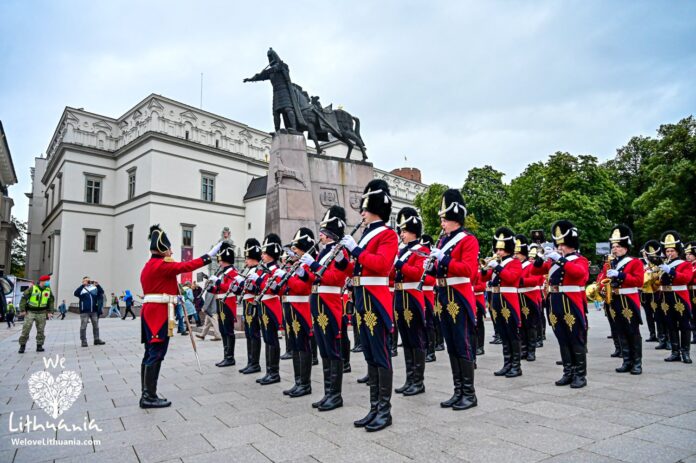
COVID-19 Report
The period of mandatory self-isolation for people returning to Lithuania from abroad is likely to be reduced from 14 days to ten as of September 15, Health Minister Aurelijus Veryga said on September 10. Prime Minister Saulius Skvernelis stated that now travellers from only two or three countries arriving in Lithuania need to isolate. He expects a common European decision, also noting that a common agreement among the three Baltic states is necessary to maintain the so-called Baltic “travel bubble”.
On September 8, thirty-two new COVID-19 cases were confirmed in Lithuania. In total, 3163 coronavirus cases have been diagnosed in the country since the outbreak of the pandemic.
There are currently 1056 active cases. 6867 people are in self-isolation in Lithuania. 2008 cases are closed, a total of 86 people have died from the virus. Thirteen other infected patients died from other causes. 676,600 coronavirus tests have been done so far, with 5303 performed on September 8.
Parliament Supports Belarus
On September 10, the Lithuanian parliament unanimously passed a resolution calling for the international community to respond to the events in Belarus and prevent Russia from deciding the political course of the country. The resolution does not recognize Alexander Lukashenko as Belarus’ legitimate leader and calls on the international community to treat any steps taken by him that conclude new agreements with Russia as a crime against the nation and a de facto annexation of Belarus. The document demands that Russia not interfere in Belarus’ domestic and foreign policies and calls for additional sanctions on Russia and the Belarussian regime if there are attempts to “limit the country’s sovereignty against the will of the Belarusian people”. It also calls on the international community to offer political, economic, financial, visa facilitation and other forms of assistance to the Belarusian people and its legal representatives.
Lithuanian President on BBC
Lithuanian president Gitanas Nausėda spoke on BBC HARDtalk on September 10, expressing deep sympathy for the people of Belarus. He remembers how Iceland recognized Lithuania’s independence 30 years ago, and says Lithuania must do the same for Belarus today.
The Lithuanian president said the results of the August 9 presidential election in Belarus were not legitimate, therefore, “Alexander Lukashenko is not the legitimate president of this country”. The Baltic states published a coordinated list of national sanctions, which also targetted Lukashenko. And although the EU spoke out in one voice, no sanctions have been proposed. He emphasized how important it is that other countries, the EU as a whole, the United States, the United Kingdom, Canada, apply the same sanctions to the Belarusian regime.
Belarus is heavily indebted to Russia and Lukashenko is “totally exposed to the will of Vladimir Putin” who sees him as “a very convenient partner”. Through Lukashenko, Putin ultimately seeks to “merge both states into one body”, said Nausėda.
Increased Tuition Fees
In Lithuania tuition fees and other study costs have increased in recent years. While some students say that they can make do with 400 euros per month, others spend twice as much.
About 30,000 applications to universities in Lithuania were submitted this year. More than 22,000 were accepted and 13,600 were eligible for state funding.
The government created 4,000 additional fully-funded study places in 2020, but around 3,000 of them have not been filled, as fewer candidates than expected met academic requirements.
Currently, university courses in Lithuania are divided into eight categories according to the price. Programmes in the first group, that includes history, philosophy, religion, culture, sociology, politics, and journalism, charge 1,669 euros per year in tuition. Aviation is the most expensive course and costs 15,234 euros per year.
University dormitories are among the cheapest options for accommodation, costing as little as 100 euros per month, but students say that you get what you pay for. A one-room apartment wcan cost 230 euros a month, plus 70 euros for utilities. Although sharing an apartment is often cheaper, finding accommodation is not always easy, because many landlords avoid renting to students. Rents decreased during the coronavirus pandemic and were currently 10 percent lower than last autumn.
New students were often surprised by how much food costs. Student budgets also include transportation costs, clothes, and parties. On average, they spend 500–600 euros per month. Parties and other entertainment cost around 100 euros per month, so the most frugal could survive on 400 euros. But many students calculate that they need twice as much if they want to have a comfortable life.
With news from BNS, LRT.lt, and Delfi.lt



























